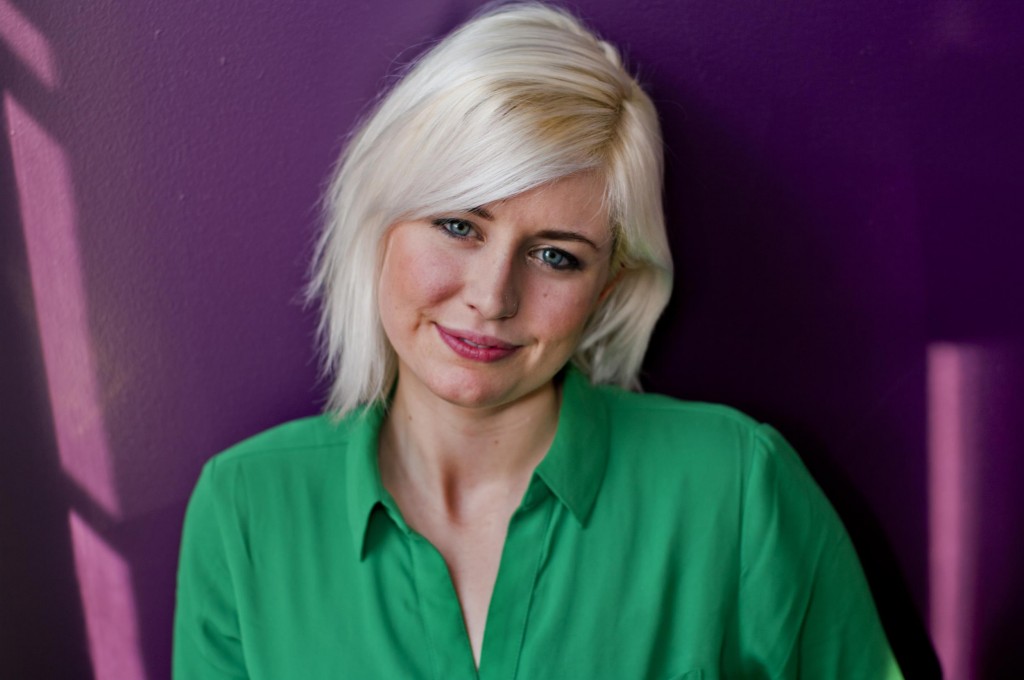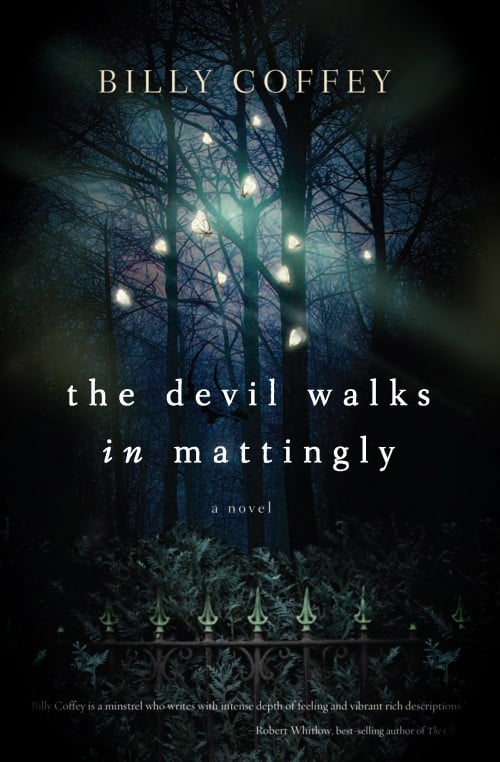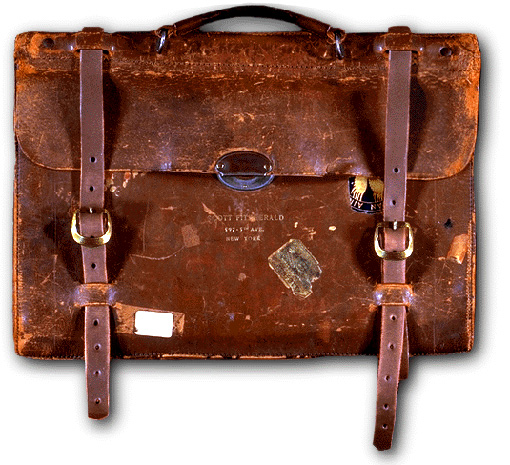Before he became a novelist, Billy Coffey was a blogger. Before that he was a ballplayer. There are glimpses of Billy in Peter Boyd, the main character in Coffey’s debut novel — Snow Day. Peter Boyd has a wife, two kids, a mortgage, and a car payment. Fortunately for him he also has a job. But word around the factory is that Peter’s about to lose his job. That has Peter worried sick, which is why he decides to take his own snow day off work. When his wife sends him to the market, Peter comes back with more than a loaf of bread and milk. Join author Karen Spears Zacharias as she talks with Billy Coffey about his debut book.
Karen: Tell readers about yourself. When did you decide to ditch your career as a Yankee to become a writer?
Billy: It was the spring of 1990, and it wasn’t by choice. I was a baseball player in high school. To me and most everyone else, that was what I would be doing for the next twenty years, which made school pretty irrelevant. I had seven classes my senior year, and four of them were study halls. My English teacher pulled me aside one day and said she wasn’t going to let me coast through the year, so she made me write a weekly column for the local newspaper.
I blew out my shoulder a few months later, and all of the scouts and letters stopped coming. It was one of the worst times I’ve ever experienced. I was seventeen, and I felt like my life was over.
So I wrote a column about it, about the fear and the depression and the need to pick myself up and move on. A week later I received an anonymous letter at school from a girl who said she’d been considering suicide. Reading my column had convinced her to try and turn her life around. That’s when I decided I had a better chance of making a difference in the world by holding a pen instead of a bat.
Karen: Your debut novel Snow Day has garnered quite a bit of attention and a huge ad in Book Page. Wow! Where did the idea for this book come from?
Billy: I took a job at a local factory in August 2000. It was without a doubt the last thing in the world I wanted to do, but it was the right thing for my family. The factory offered good pay, great benefits, and stable work. Then in December 2005, I was told I would likely be laid off. If hurting my shoulder was bad, this was much worse. By then my wife and I had two children, a mortgage, two car payments, and student loans. My wife’s job as a teacher’s aid was barely minimum wage, it was Christmastime, and our savings wouldn’t see us past two months. So I started writing down everything I was feeling and experiencing as a sort of free therapy. That’s how Snow Day was born.
Karen: I think a lot of readers will relate to Peter Boyd’s fears about his employment status. What is the message you want to give those readers in particular?
Billy: That losing your job because of the recession isn’t your fault, and it doesn’t mean you’ve failed. See it as a chance to return to the basics—the bread and milk—of your life. Lean on the things that make your life meaningful, things like faith and family and community. They won’t just get you through, they’ll give you a joy your job couldn’t.
Karen: In Snow Day the local Super Mart (recognizable to anyone who has spent time at the Wal-Mart Super Store) serves as the community gathering place. The major interaction of the day takes place at the Super Mart. Why did you make the Mart the community’s center? Is there commentary in that choice?
Billy: I love Wal-Mart, I truly do. I don’t go there to shop much, but just to watch people. These days everyone is trying to save as much as they can, and so you have people of all walks of life mingling there. Just the other day I watched a grandmother in overalls showing a man in a suit and tie how to find the best deal on canned green beans. It was wonderful. There are so many invisible lines drawn between people based on their status or their financial worth, but all of those lines disappear at the local Wal-Mart. I think it’s one of the most amazing places in the world.
Karen: You introduce readers to a cast of characters, all of whom teach Peter Boyd something about himself. Which of these characters were your favorites?
Billy: I was about to say Spooky Gray Man and his act of hidden charity, because that seems to be among everyone’s favorite. But honestly I think it’s Bobby Barnes, the man who lost his faith during a mission trip to New Orleans after Hurricane Katrina. There’s a lot of tragedy in him and a great sense of loss, but there’s also a lingering hope that his story isn’t over yet.
Karen: Are any of these characters modeled on real people from your own life? Or did you really stalk people at the local Mart searching for material?
Billy: Many of the characters are modeled on real people. I know a Bobby Barnes. I know a Kenny McCallom. A lot of the ideas that were turned into characters really did come from field trips to the Wal-Mart down the road. And there’s also a whole lot of me in there, too.
Karen: When you pick up a book to read, whose byline is on it?
Billy: I’ll read almost anything from Seneca to Calvin & Hobbes. I love Stephen King and Robert Fulghum, and lately I’ve been reading a lot of Flannery O’Connor. And, of course, Karen Spears Zacharias. Because she’s awesome.
Karen: HA! Good answer. What do you look for in a book as a reader?
Billy: Someone with heavy questions and a heavy heart, which I think means most of us. I might not be able to give you all the answers, but I’ll be glad to sit and wonder with you for a while.
Karen: I once heard a novelist say it’s harder to write about good marriages than bad ones. Do you think it’s more difficult to write about people who are happy with their lives than say malcontents or troublemakers?
Billy: I think good writing tends to revolve around some sort of conflict, so it can be harder to write about people who seem to have no conflicts at all. But I think there’s always some tension, even in happy lives. The world’s a rocky place. I don’t think happiness is found in trying to make your walk easier by grinding all those rocks into soft sand, I think it’s found by just putting on a pair of boots.
Karen: Faith is at the core of Snow Day, and all of your writing, really. Do you consider yourself a Christian writer? Or does that label limit you as an artist?
Billy: I think I see myself as more a writer who’s a Christian. Faith will always play a major role in anything I write. That’s just who I am. But it’s often a soft undercurrent rather than a riptide. There are a lot of people who read what I write and don’t believe in God at all, but they still get something out of it. I like that.
Karen: There are Believers who consider Santa to be a red-suited anti-Christ, yet, you claim Santa is God 101 for a child. Care to explain this heresy?
Billy: Here is someone who sees everything. He sees you when you’re sleeping and knows when you’re awake. He knows if you’ve been bad or good. You know you should be good for goodness sake, but you just can’t do that all the time. But you know what? Chances are you’ll get presents anyway, things you know deep down you don’t deserve. Because no matter how many times you screw up, you know he still loves you.
Now, am I talking about Santa Claus or God?
Karen: One of your characters navigates life with a list of Reasonable Directions. Do you have such a list? One that you are teaching your children?
Billy: I keep a list. Like the Ten Commandments, it’s short, straightforward, and commonsensical. I’ll go back every January 1 and see if anything has happened over the past year that would warrant an edit. There have been amendments, but I’ve never repealed anything. And I do use it as a sort of guide for my children, but I’d rather they start working on their own.
Karen: There is a lot of negative news coming out of the publishing business. How was it you managed to get a contract during the midst of one of the publishing businesses most dour economic seasons?
Billy: Aside from the grace of God, I have no idea. My agent worked very hard to get the book to publishers, and FaithWords took a leap of faith. I think the fact that the subject matter was very applicable to the times helped a lot. It’s proof that if someone like me can get a publishing contract, anyone can.
Karen: What is it about writing that you love? And hate?
Billy: I love the simple act of sitting down to write, of just letting your hand fly across the page. There aren’t a lot of times in my life when I feel truly at peace, but I feel that when I write.
The worst part has to be the waiting. You’re waiting for revision notes, you’re waiting for the book cover, you’re waiting for promos and reviews and publication dates. You’ll drive yourself crazy if you don’t find something constructive to do.
Karen: Tell us about your writing process. What does a typical day for Billy Coffey look like?
Billy: I keep a daily quota of 1,000 words when I’m working on a book, and fitting that into a job and a family can be tough. I usually get up about 5:30 AM and get in a workout, then it’s to work. I can usually edit what I’ve written the day before during my break and then get in about 500 words during lunch, if things aren’t busy. I leave work at 4:00 PM, then it’s helping with dinner and doing homework with the kids and whatever needs to be done outside. My wife is a teacher, so those two hours or so after the kids get to bed that she uses to grade papers are when I read. Half of writing is reading; you can’t do one without the other. I’ll finish off my 1,000 words after everyone’s in bed, then repeat the process the next day. On a good day, I’m tired. On a bad one, I’m slumped in the corner sucking my thumb.
Karen: What are you working on next?
Billy: My next novel is called Paper Angels and will be out next November. I’ll spend all that waiting time writing book three, tentatively titled No Home for the Weary.












